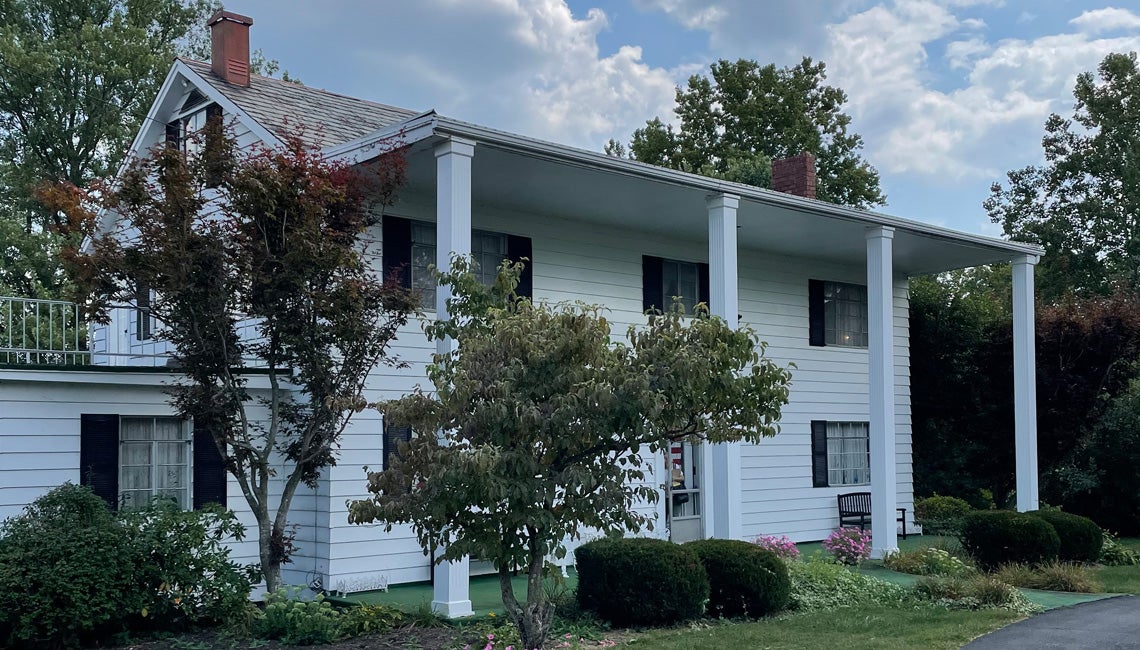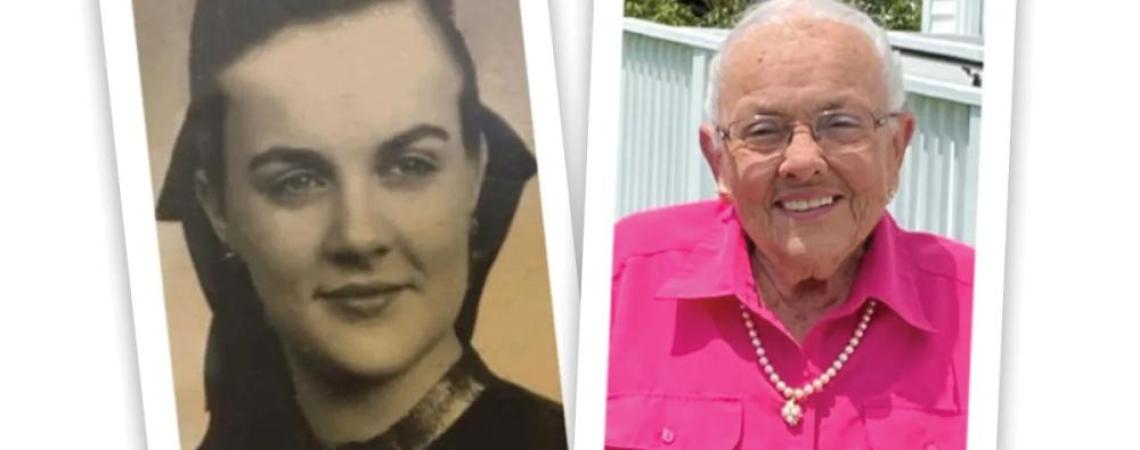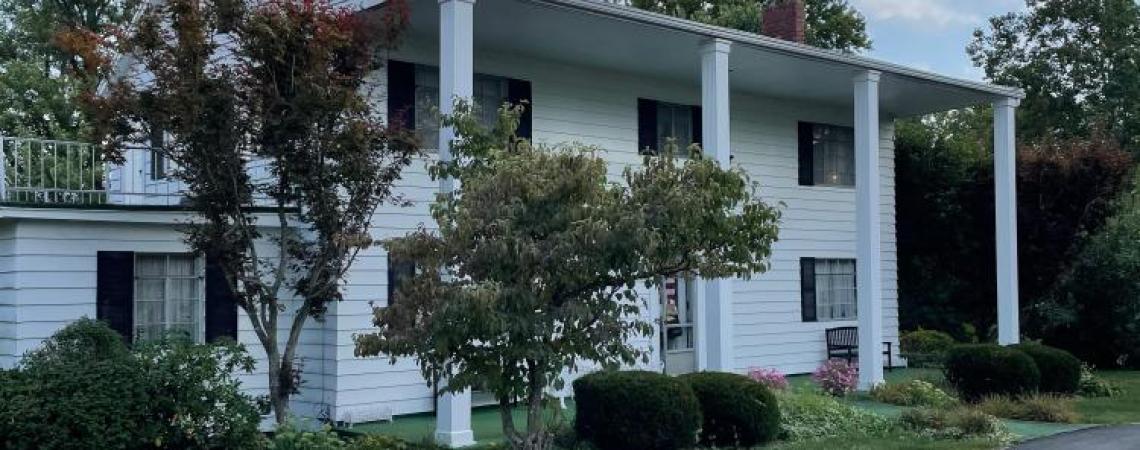Dorothy Montgomery is old enough to remember when the men from “the REA” (in this case, Guernsey-Muskingum Electric Cooperative) started digging holes, by hand, to set electric poles along her country road after the creation of the Rural Electrification Administration in 1935.
Each October, as cooperatives everywhere celebrate National Cooperative Month, Montgomery’s story is a reminder of how neighbors and small communities came together to bring power to the nation’s farms and rural countrysides when the big electric companies determined there wasn’t enough money to be made there.
Dorothy Montgomery is old enough to remember when her local electric cooperative started setting electric poles along her country road in 1935.
Montgomery recalls the excitement that spread among her family and neighbors as more and more signed up to join the co-op to bring electricity to their homes and farms — which had previously been lit by oil lamps or “Aladdin lamps.”
There’s one detail in particular, however, that is still fresh in her mind to this day. “I remember the shock if you stuck your finger in the socket,” she says. She’d been told doing that would hurt — “and it did,” she confirms. “Oil lamps never shocked you.”
Now 93, Dorothy is still a live wire, and she remains loyal to the co-op after all this time — mindful of just how much co-ops changed people’s lives in the 1930s and how they continue to do so to this day (co-ops, after all, are still owned by the members they serve and run by trustees elected by the local members to act in the members’ best interest, rather than to be motivated by profit for shareholders).
The big day
Who could forget that Sunday evening back in 1939? Everyone gathered at the church, Dorothy remembers, and the sanctuary was packed. Everyone waited … “then they turned on the lights,” she says. “Everything changed.”
Before the arrival of “the electric,” Montgomery says, her mother used a coal stove. Because her mother “canned everything,” the stove often was roaring and the house was sweltering, especially on hot days. An electric refrigerator was a life-changer.
Each room in the house had a light socket and receptacle, Montgomery says. “It was amazing.”
Unlike with some families, the arrival of electric lights didn’t lengthen evenings much in her household. “Daddy was a getter-upper in the morning,” she says, so the family continued to be early go-to-bedders in the evening.
Still, electricity had its rewards. “I think just to satisfy me, we had a radio. Just a little radio. And we had lights on the Christmas tree!” she remembers.
Living legend
Those early days on the farm, of course, were highly influential on the young Dorothy, and she has become an iconic figure around Zanesville and Muskingum County.
Montgomery graduated from Muskingum College and taught school for several years — mostly in Zanesville, but also for a time in Florida during the 1950s, when her husband, John, was stationed there in the Air Force. Among her pupils there, she remembers, were a group of first graders whose families were with the circus and lived in the circus trains.
When she and John returned to Muskingum County, they bought a former schoolhouse, which John carefully dismantled, labeled, and reassembled, board by board. He finished that project in 1960 and they lived there together until his passing in 2014. She still lives there on her own, though her daughter, local attorney Susan Montgomery McDonald, and Susan’s husband, James McDonald, own and operate McDonald’s Greenhouse and Corn Maze next door.
Montgomery also served four terms as a Muskingum County commissioner, and this year she’s being recognized for serving 70 years as a 4-H adviser.
That connection to 4-H is deeply personal to her, by the way. Not only does it serve as a connection to her childhood on the farm, but she also met John at 4-H Camp Ohio, where he was a lifeguard. “He tried to teach me to swim, but I never did learn,” she says.
Loyal to the co-op
“We haven’t mentioned the irons!” Montgomery says, jumping back to those early days on the farm. Before electricity, she says, they had to use heavy metal irons, heated on the stove or fire, that would get so hot that the handles had to be covered with a cloth to pick them up.
Toasters, too; Montgomery describes tripods that were placed on a coal or wood-burning stove on which slices of bread would be “somewhat” toasted — which of course became appliances of the past when electricity was introduced.
Brian Hill, general manager at Guernsey-Muskingum Electric Cooperative, says he always looks forward to reminiscing with Montgomery at the co-op’s annual meetings each April.
“Dorothy has such vivid memories and tells such great stories,” Hill says. “She is truly an ambassador for Muskingum County and, really, all of rural southeastern Ohio. I think you could say that people like her are the reason that co-ops came into existence in the first place, and I, for one, really enjoy having that connection to the co-op’s history. It reminds you why we’re here.”












